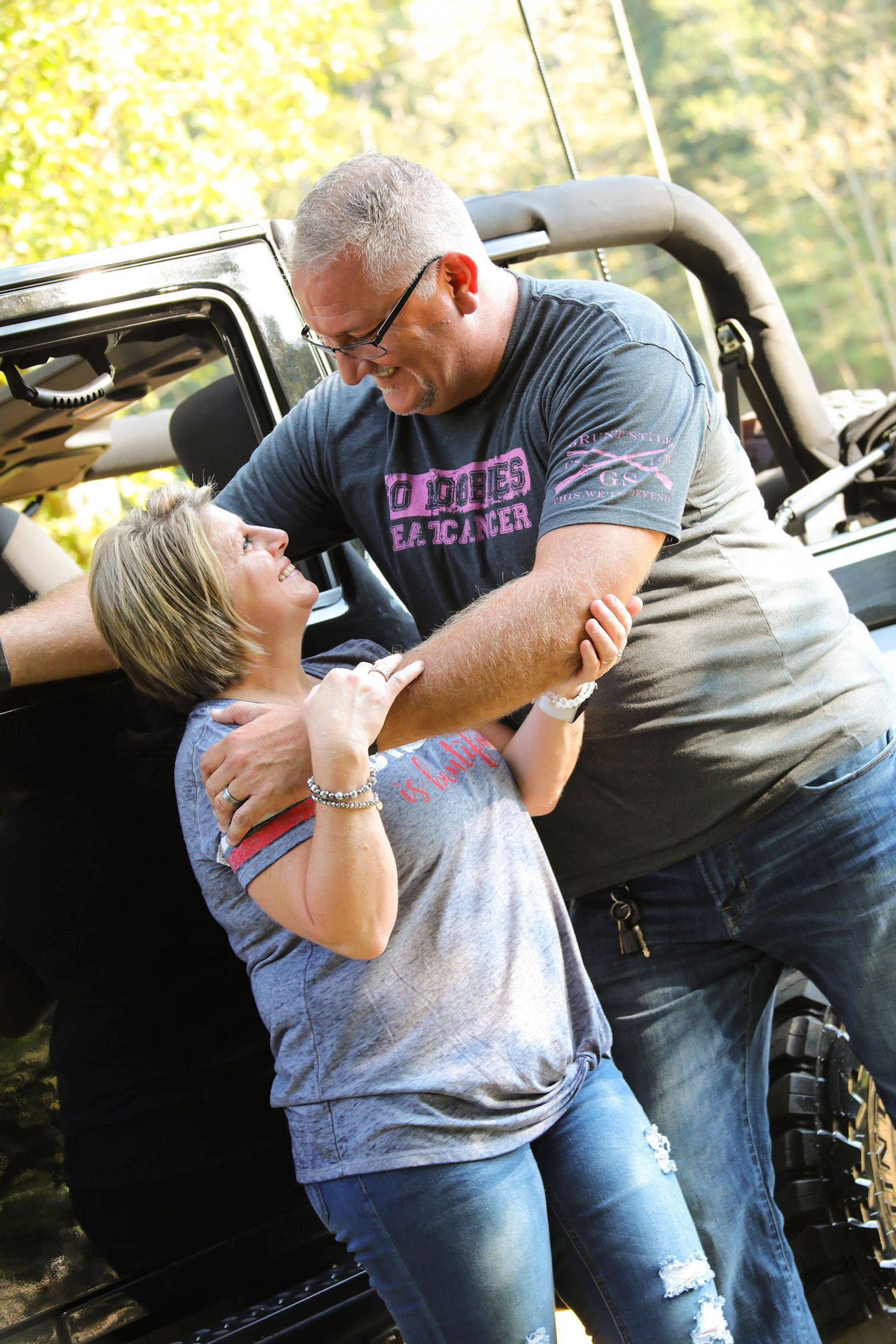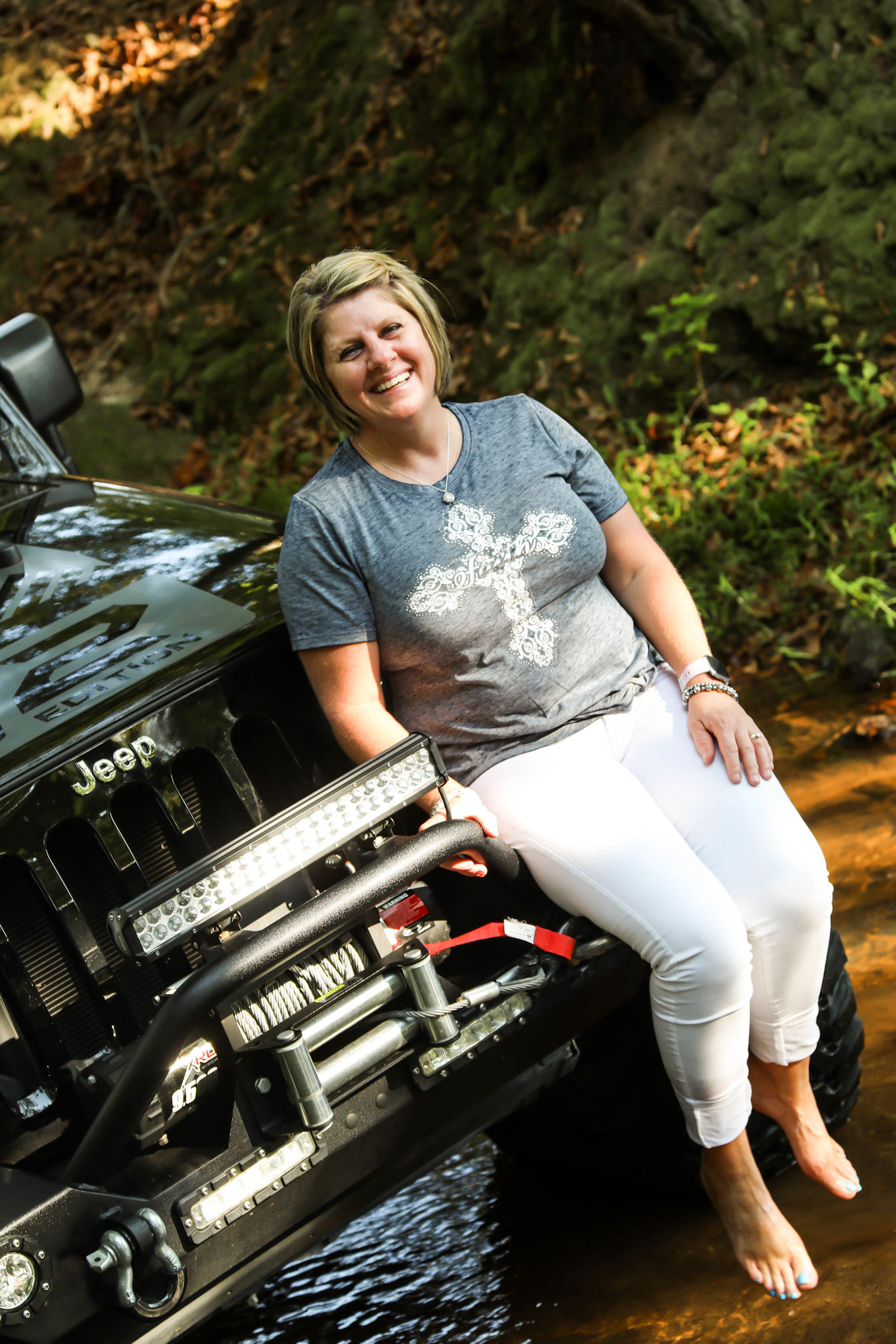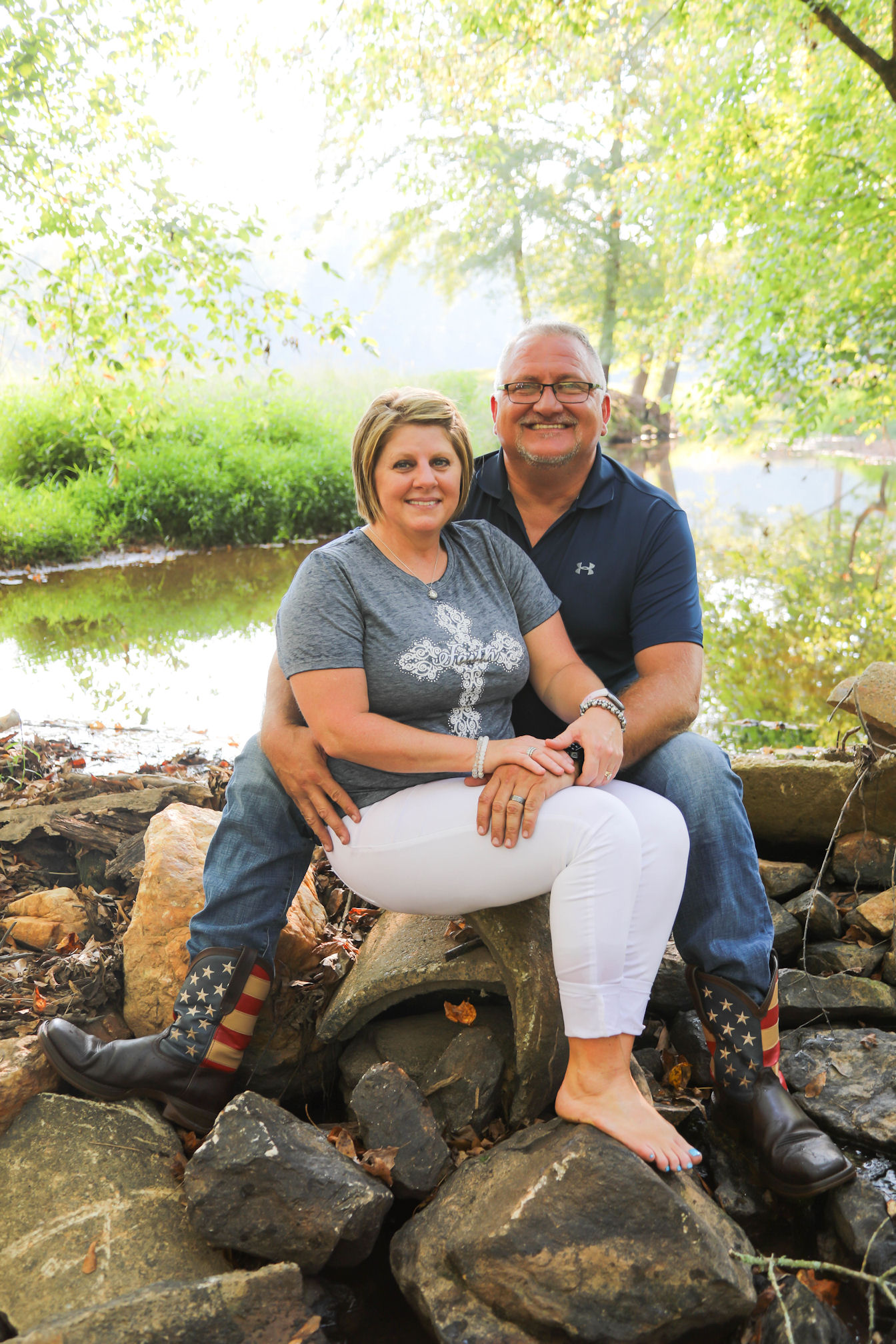Angel Spradlin never imagined she’d find herself navigating a complex cancer diagnosis.
Spradlin, who works at
Carrollton Orthopaedic Clinic, is no stranger to health care. But she wasn’t used to being a patient. She had never been sick or hospitalized other than to give birth to her children.

“I never needed medicine or took anything other than a vitamin,” Spradlin said. “Now all the sudden I was having all these procedures and starting chemo, so it was such a whirlwind.”
Spradlin was diagnosed with stage II invasive ductal carcinoma at 45.
“It was such a shock,” she said. “I had already pretty much made up my mind that it wasn’t going to be cancer.”
Spradlin was at a check-up with her gynecologist in February 2018, and her doctor found a lump in her breast during the exam. It had been a couple years since she had gone for a check-up, and her husband had insisted she go.
“I’m grateful that I did so that they could catch this,” Spradlin said.
That same afternoon, she went for a diagnostic mammogram and ultrasound, and the radiologist recommended a biopsy.
A few days later, she went to see
Raul Zunzunegui, MD, a Susan G. Komen Fellowship-trained breast specialist and board-certified surgeon with Comprehensive Breast Care Center. She had a biopsy two days later and soon got the news that she had cancer.
“It was a hectic, life-changing week,” Spradlin recalled.
Finding a Path Forward
With that daunting news, she embarked on a journey that began in early March with a lumpectomy. Dr. Zunzunegui also removed two of the lymph nodes where cancer had spread.
“It was painful, but I have a high tolerance for pain, so I just dealt with it,” she said. “It’s just something you have to get through, and then after a few days you feel better.”
She also had a MammaPrint test, which is known as a tumor-profiling test because it analyzes a sample of a tumor (removed during a surgery or biopsy) and tests it for 70 genes. MammaPrint can show whether some breast cancers are likely to spread to other organs.
Spradlin said she learned that her cancer was estrogen-positive, progesterone-positive and HER2-negative.
After her lumpectomy, she had a positron emission tomography (PET) scan to look for any signs of cancer in her remaining lymph nodes. A PET scan highlights areas of activity, like cell growth, that may indicate cancerous cells.
Spradlin said her PET scan revealed two lymph nodes — one in her throat and one in her chest — that needed to be biopsied. The biopsy of the lymph node in her throat was quick and found to be benign.
The lymph node in her chest proved to be more complicated because it was in a difficult area to access. A cardiothoracic surgeon had to go through her ribs and deflate her left lung to remove the lymph node and some of the surrounding lymph nodes. It required a three-day hospital stay and a drain tube for few days during her recovery.
“I was so grateful that those were negative,” she said.
Next, Spradlin had a port placed so that she could begin chemotherapy.
Randall Pierce, MD, who is board-certified in medical oncology with Northwest Georgia Oncology Centers, was her oncologist.
A port is a device that is placed under the skin. It has a thin tube that goes into a large vein. The port stays in place for weeks or months, making it easier to administer medicines like chemotherapy drugs intravenously and much easier to draw blood.
Her doctors determined she needed eight rounds of
chemotherapy, and she received one round every other week throughout the summer of 2018.
She decided to try a different approach to managing the side effects of chemotherapy. Before each chemotherapy treatment, she went for a three-hour infusion of minerals and vitamins at the
Bremen Health Clinic.
“I never threw up from chemo, and I think one reason I did so well was that I had the mineral infusions,” she said. “One week I couldn’t go for my infusion, and I could tell a huge difference in how much worse I felt.”
She also met with a nutritionist at Tanner Health System at the beginning of her treatment and got some great tips about eating as healthily as possible.
“I started eating better during chemotherapy and I tried to cut out a lot of sugar,” Spradlin said.
Support Through Tough Times

One of the toughest parts of chemotherapy was losing her hair.
“I did get emotional about my hair,” she said. “I told myself, ‘it’s just hair, it will grow back,’ but it was still very hard.”
At this difficult time, her support network rallied behind her. When her hair started falling out, her husband helped her shave her head and then he shaved his in solidarity. Their son did, too. Her friend gave her a beautiful wig made of real hair that looked exactly like her hair.
“I couldn’t believe it; it looked just like my real hair,” she said. “Nobody could even tell I was wearing a wig.”
Her husband, Shane, helped her through every step of her treatment. An investigator with the
Carroll County Sheriff’s Office, he took time off work to bring her to chemotherapy. He also helped take care of her at home after her surgeries.
“He was my rock and he always kept me going on the tough days,” Spradlin said. “If it wasn’t for him, I know I wouldn’t have done so well.”
They have a 25-year-old daughter and a 20-year-old son who both live in west Georgia.
Another big part of her support system was her sister, Renee, who is also a cancer survivor.
“It helped tremendously to have someone to talk to who had personally experienced cancer,” Spradlin said. “She was there to talk me through the whole thing and was very supportive.”
Spradlin also found comfort and connection in an app for cancer patients and survivors called “Belong.” A friend from church who had cancer recommended the app to her when they serendipitously ran into each other at the oncologist’s office.
Life During Treatment
Another major source of support was her job. She tried to work as much as she could during chemo because her job played such a positive role in her life.
Spradlin does insurance pre-certifications for orthopedic patients who are having diagnostic procedures and surgeries.
“My work family is amazing,” she said. “They would help me just like my husband did at home, and I felt like I was constantly lifted up by my co-workers.”
She received chemotherapy every other Tuesday. She would go back to work on Wednesday, but by Thursday, she’d be exhausted from the treatment and need to take a couple of days to rest at home.
After finishing chemotherapy, she had 36
radiation treatments, five days a week. She said she tolerated it well and didn’t have any pain until the last few days of her treatments.
Toward the end her radiation treatments, she took a much-needed break. She and her husband were celebrating their 25th wedding anniversary and decided to go on a cruise to the Bahamas.
“We had a wonderful time together, and it was such a nice break not to go into a doctor’s office that week,” Spradlin said.

With one week to go in her radiation treatments, she had another surgery. She underwent a hysterectomy as a preventive measure because her cancer was determined to be high-risk for recurrence.
Spradlin finished all her cancer treatment in December 2018. She said she is grateful for the excellent care she received.
“My doctors and nurses were absolutely wonderful, and that made such a huge difference,” she said. “It’s so hard to find out that you have cancer, but I am truly blessed with the care I got and the way everything went.”
New Beginnings
These days, Spradlin, 46, is feeling well and life is mostly back to normal, despite some fatigue. Her hair has grown back, and she has enough energy to do the things she wants to do. She and her husband find time to ride motorcycles and kayak together.
As someone who used to exercise every day, she is excited to be returning to her regular routine.
“I’m just getting back into that now, and I’m at the point where I can do two miles a day,” Spradlin said.
Being on steroids during chemotherapy caused her to gain weight, and she is gradually shedding those extra pounds through exercise and healthy eating.
Reflecting on her long journey from diagnosis to recovery, Spradlin has some advice for those who are facing cancer. She urges them to try to stay positive, even when things get tough during cancer treatment.
“Your attitude makes a really big difference,” she said. “You can lay down and let it take over, or you can get up and fight.”